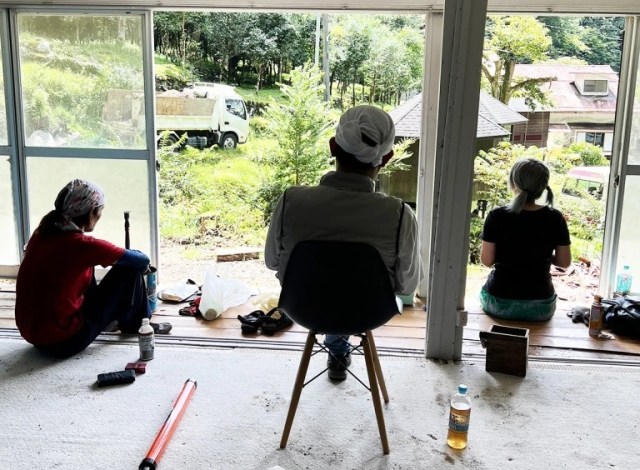
It’s time to turn some trash into cash.
Last year, we bought a house in the Japanese countryside, and we dropped a cool million on it. Of course, that’s a million yen we’re talking about which at the exchange rates at the time worked out to only about US$9,100.
As you might expect from that amazingly low price, the SoraHouse is a fixer-upper…and also a tearer-downer. In addition to the house itself, our property has a storage shed and other structures that were in enough disrepair that we decided to tear them down.
The debris are well beyond what we can set out by the side of the road on trash pickup day, and so we enlisted the help of local construction company Hobien, who dispatched Imazu, the contractor who we’ve been coordinating with on the SoraHouse project, to help us with the cleanup of the hunks of metal left over from the demolition.
It was a long, sweaty process, but after spending half a day of hauling sheets and shards of metal to the truck and loading them into the bed, we were done.
Or, more accurately we were done with the first phase of the day’s plan. Once we closed up the truck’s tailgate, we hopped in, Imazu fired up the engine, and we were off.
Our destination: the scrapyard.
Yep, it was time to turn our trash into cash. We may not need the metal we’d cleared away anymore, but that just meant it was time for the materials to be recycled and start the next chapter of their inanimate lives, and the first step in that process was us selling them to a scrap metal buyer.
Since the amount you’re offered for your scrap depends on how much it weighs, we were worried that we were now going to have to spend hours unloading all of the stuff we’d just loaded into the truck so it could be weighed. Thankfully, the professionals who run the scrapyard have a much smarter, more efficient systemin place. First, you drive your truck, with all the metal you’ll be selling still in it, onto what’s essentially a giant weight scale.
Then, you drive back off the scale and dump everything out the back. Finally, you drive back onto the scale and weigh the truck one more time, and the difference tells you how your pile of metal weighs, which in our case turned out to be 640 kilograms (1,411 pounds)!
▼ No wonder it took us so long to load up the truck.
As with any commodity, the price of scrap metal fluctuates, but on this day our 640 kilograms were worth 28,800 yen (US$201.08). Add in the 50 yen the scrapyard gave us for a washing machine we were getting rid of plus another 540 for some copper wiring, and our total earnings came to 29,390 yen.
So we guess you could say that our house we bought for one million yen really only cost us 970,610 yen. Who knows, maybe we’ll find a bunch of old hats in one of the SoraHouse closets and the place will end up paying for itself.
Photos ©SoraNews24
● Want to hear about SoraNews24’s latest articles as soon as they’re published? Follow us on Facebook and Twitter!
[ Read in Japanese ]

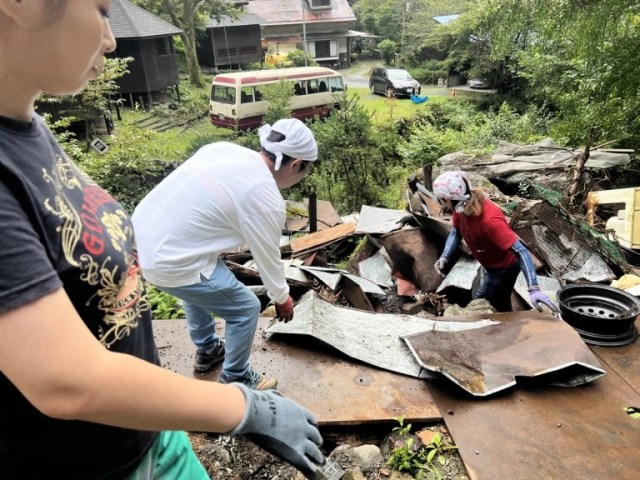
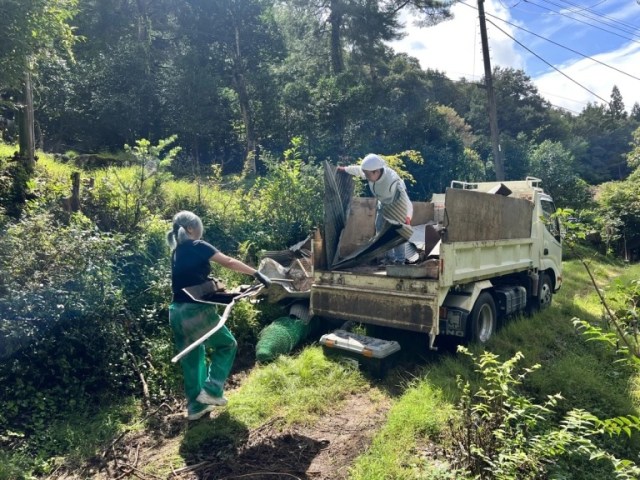
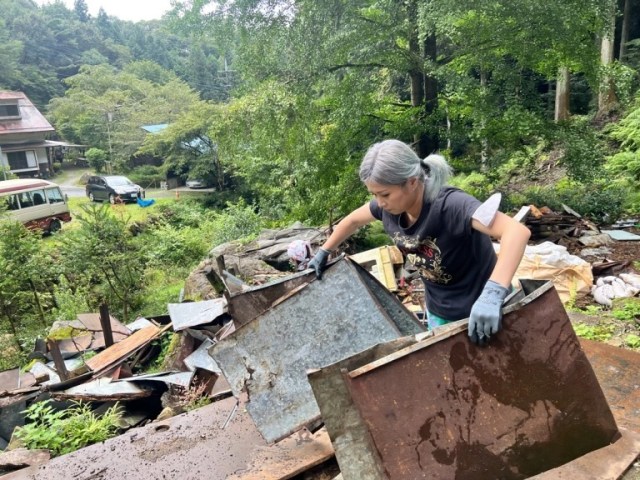

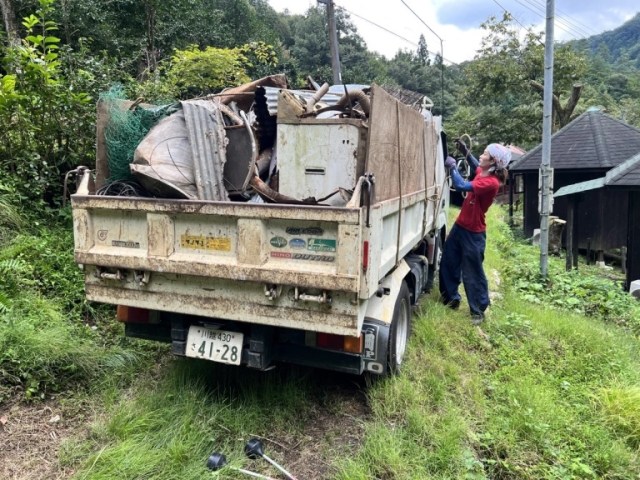

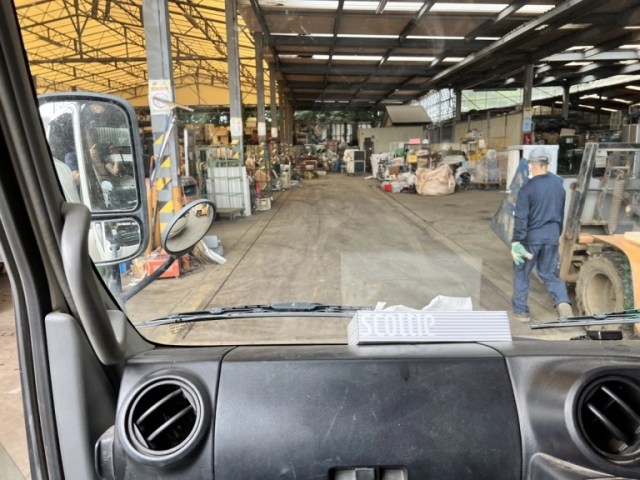
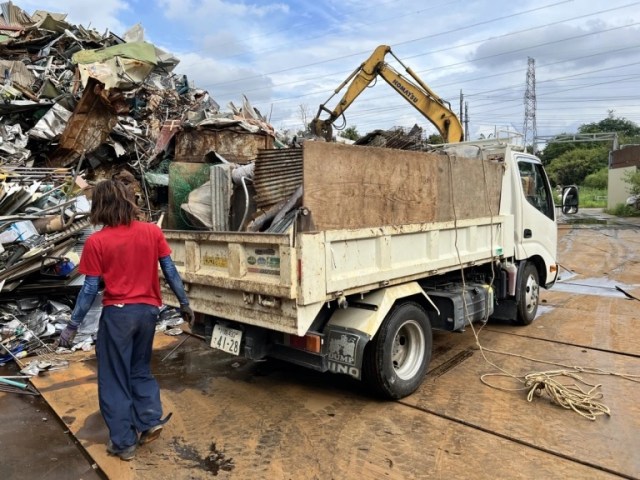
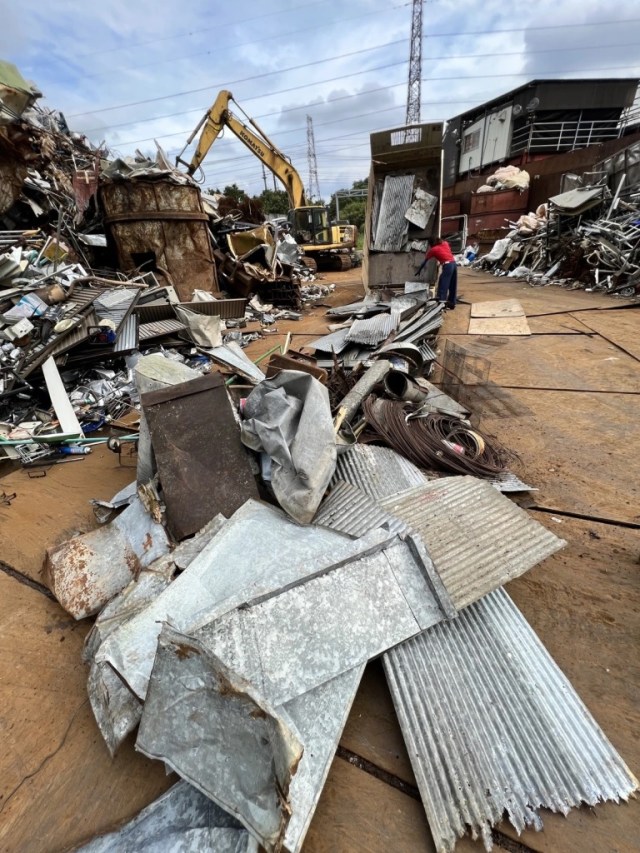

 Turning a crazy cheap country Japanese house into a home — Step 11: Dig for treasure【SoraHouse】
Turning a crazy cheap country Japanese house into a home — Step 11: Dig for treasure【SoraHouse】 Turning a crazy cheap country Japanese house into a home — Step 2: Clearing out weeds【SoraHouse】
Turning a crazy cheap country Japanese house into a home — Step 2: Clearing out weeds【SoraHouse】 Setting up zero-cost electricity at our cheap Japanese country house so it looks less haunted
Setting up zero-cost electricity at our cheap Japanese country house so it looks less haunted 44 bubble machines on the roof of a Japanese country house is our idea of renovating【Video】
44 bubble machines on the roof of a Japanese country house is our idea of renovating【Video】 What happens when our team starts renovating our cheap countryside house in Japan?
What happens when our team starts renovating our cheap countryside house in Japan? Red light district sushi restaurant in Tokyo shows us just how wrong we were about it
Red light district sushi restaurant in Tokyo shows us just how wrong we were about it McDonald’s new Happy Meals offer up cute and practical Sanrio lifestyle goods
McDonald’s new Happy Meals offer up cute and practical Sanrio lifestyle goods Historical figures get manga makeovers from artists of Spy x Family, My Hero Academia and more
Historical figures get manga makeovers from artists of Spy x Family, My Hero Academia and more French Fries Bread in Tokyo’s Shibuya becomes a hit on social media
French Fries Bread in Tokyo’s Shibuya becomes a hit on social media Sandwiches fit for a sumo served up in Osaka【Taste Test】
Sandwiches fit for a sumo served up in Osaka【Taste Test】 Tokyo Tsukiji fish market site to be redeveloped with 50,000-seat stadium, hotel, shopping center
Tokyo Tsukiji fish market site to be redeveloped with 50,000-seat stadium, hotel, shopping center Starbucks Japan adds a Motto Frappuccino to the menu for a limited time
Starbucks Japan adds a Motto Frappuccino to the menu for a limited time Celebrate another year of life by putting it in jeopardy with this birthday candle flower
Celebrate another year of life by putting it in jeopardy with this birthday candle flower Anime girl English teacher Ellen-sensei becomes VTuber/VVTUber and NFT
Anime girl English teacher Ellen-sensei becomes VTuber/VVTUber and NFT Pokémon Sleep camping suite and guestrooms coming to Tokyo Hyatt along with giant Snorlax burgers
Pokémon Sleep camping suite and guestrooms coming to Tokyo Hyatt along with giant Snorlax burgers Japanese ramen restaurants under pressure from new yen banknotes
Japanese ramen restaurants under pressure from new yen banknotes All-you-can-drink Starbucks and amazing views part of Tokyo’s new 170 meter-high sky lounge
All-you-can-drink Starbucks and amazing views part of Tokyo’s new 170 meter-high sky lounge Studio Ghibli releases new action figures featuring Nausicaä of the Valley of the Wind characters
Studio Ghibli releases new action figures featuring Nausicaä of the Valley of the Wind characters New private rooms on Tokaido Shinkansen change the way we travel from Tokyo to Kyoto
New private rooms on Tokaido Shinkansen change the way we travel from Tokyo to Kyoto Studio Ghibli glasses cases let anime characters keep an eye on your spectacles
Studio Ghibli glasses cases let anime characters keep an eye on your spectacles Beautiful Ghibli sealing wax kits let you create accessories and elegant letter decorations【Pics】
Beautiful Ghibli sealing wax kits let you create accessories and elegant letter decorations【Pics】 Studio Ghibli releases Kiki’s Delivery Service chocolate cake pouches in Japan
Studio Ghibli releases Kiki’s Delivery Service chocolate cake pouches in Japan New definition of “Japanese whiskey” goes into effect to prevent fakes from fooling overseas buyers
New definition of “Japanese whiskey” goes into effect to prevent fakes from fooling overseas buyers Our Japanese reporter visits Costco in the U.S., finds super American and very Japanese things
Our Japanese reporter visits Costco in the U.S., finds super American and very Japanese things Studio Ghibli unveils Mother’s Day gift set that captures the love in My Neighbour Totoro
Studio Ghibli unveils Mother’s Day gift set that captures the love in My Neighbour Totoro New Japanese KitKat flavour stars Sanrio characters, including Hello Kitty
New Japanese KitKat flavour stars Sanrio characters, including Hello Kitty More foreign tourists than ever before in history visited Japan last month
More foreign tourists than ever before in history visited Japan last month New Pokémon cakes let you eat your way through Pikachu and all the Eevee evolutions
New Pokémon cakes let you eat your way through Pikachu and all the Eevee evolutions Sales of Japan’s most convenient train ticket/shopping payment cards suspended indefinitely
Sales of Japan’s most convenient train ticket/shopping payment cards suspended indefinitely Sold-out Studio Ghibli desktop humidifiers are back so Totoro can help you through the dry season
Sold-out Studio Ghibli desktop humidifiers are back so Totoro can help you through the dry season Japanese government to make first change to romanization spelling rules since the 1950s
Japanese government to make first change to romanization spelling rules since the 1950s Ghibli founders Toshio Suzuki and Hayao Miyazaki contribute to Japanese whisky Totoro label design
Ghibli founders Toshio Suzuki and Hayao Miyazaki contribute to Japanese whisky Totoro label design Doraemon found buried at sea as scene from 1993 anime becomes real life【Photos】
Doraemon found buried at sea as scene from 1993 anime becomes real life【Photos】 Tokyo’s most famous Starbucks is closed
Tokyo’s most famous Starbucks is closed One Piece characters’ nationalities revealed, but fans have mixed opinions
One Piece characters’ nationalities revealed, but fans have mixed opinions We asked a Uniqlo employee what four things we should buy and their suggestions didn’t disappoint
We asked a Uniqlo employee what four things we should buy and their suggestions didn’t disappoint Princesses, fruits, and blacksmiths: Study reveals the 30 most unusual family names in Japan
Princesses, fruits, and blacksmiths: Study reveals the 30 most unusual family names in Japan We accidentally turned our cheap country house into a “gaming house” for Christmas【SoraHouse】
We accidentally turned our cheap country house into a “gaming house” for Christmas【SoraHouse】 Turning a crazy cheap country Japanese house into a home — Step 10: Mysterious water【SoraHouse】
Turning a crazy cheap country Japanese house into a home — Step 10: Mysterious water【SoraHouse】 Outrage sparked: Tokyo truck driver abandons body of suicide victim, claims the body was a “doll”
Outrage sparked: Tokyo truck driver abandons body of suicide victim, claims the body was a “doll” An unexpected visitor stops by our cheap Japanese house in the countryside【SoraHouse】
An unexpected visitor stops by our cheap Japanese house in the countryside【SoraHouse】 1,000 boxes of disposable chopsticks dumped on Tokyo freeway following delivery truck fire【Video】
1,000 boxes of disposable chopsticks dumped on Tokyo freeway following delivery truck fire【Video】 Turning a crazy cheap country Japanese house into a home — Step 9: Chestnuts【SoraHouse】
Turning a crazy cheap country Japanese house into a home — Step 9: Chestnuts【SoraHouse】 Turning a crazy cheap country Japanese house into a home — Step 14: Before and After 【SoraHouse】
Turning a crazy cheap country Japanese house into a home — Step 14: Before and After 【SoraHouse】 First Hello Kitty cafe to open in California!
First Hello Kitty cafe to open in California! Japan government asking for our old electronics so scrap metal can be used in Olympic medals
Japan government asking for our old electronics so scrap metal can be used in Olympic medals Japanese squat toilet plastic model kit: Weird, gross, or both?【Photos】
Japanese squat toilet plastic model kit: Weird, gross, or both?【Photos】 Shocking footage of accident on Japanese highway reminds us of the fragility of life 【Video】
Shocking footage of accident on Japanese highway reminds us of the fragility of life 【Video】 Kyoto City planning to sell cremated people’s precious metal fillings for millions of yen
Kyoto City planning to sell cremated people’s precious metal fillings for millions of yen Ramen and dekotora come together at this restaurant in Japan
Ramen and dekotora come together at this restaurant in Japan 15 tons of sweet potatoes stolen in rural Japan, criminal crew may be targeting spuds
15 tons of sweet potatoes stolen in rural Japan, criminal crew may be targeting spuds
Leave a Reply